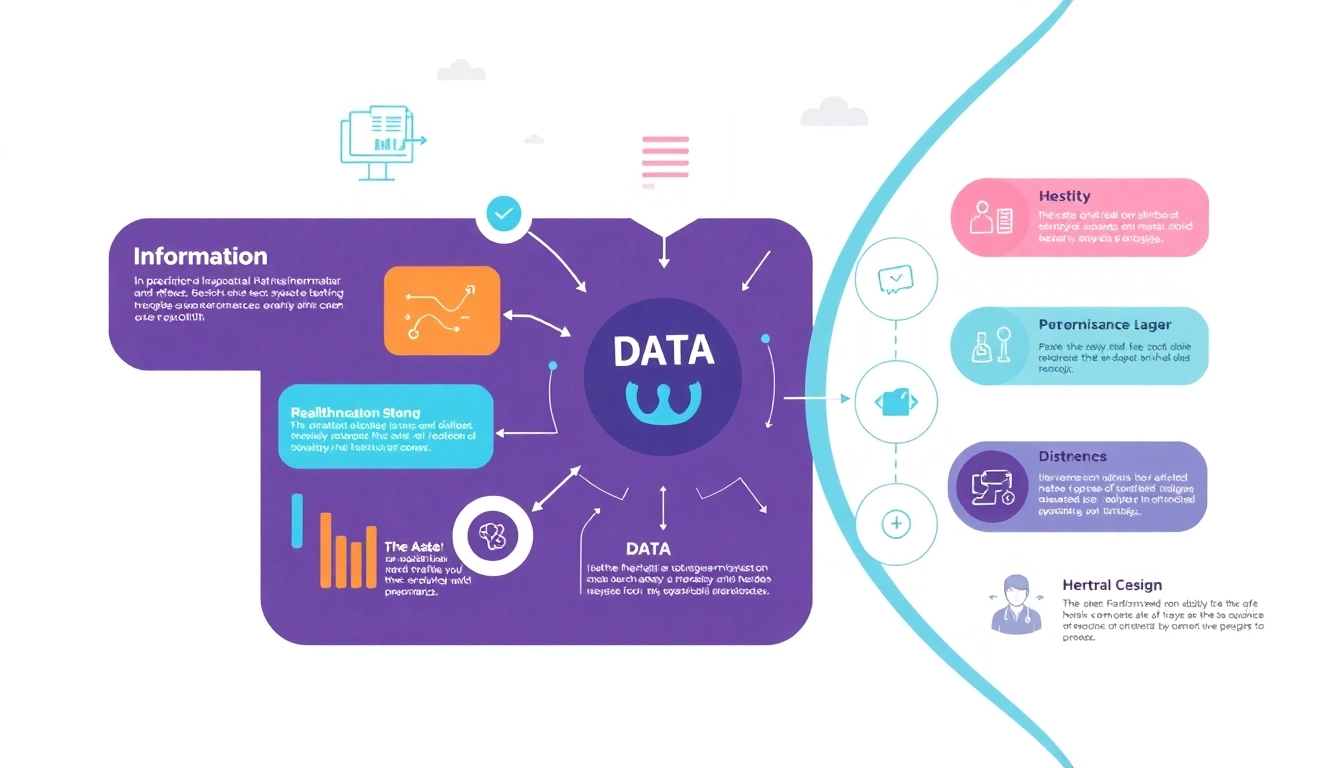Introduction to Informatics
Informatics plays a pivotal role in today’s digital age, particularly within the healthcare domain. It encompasses a broad range of disciplines that analyze how data, information, and knowledge can be harnessed to improve human health and optimize healthcare delivery systems. The integration of informatics across various sectors is increasingly crucial due to the emergence of big data and the need for efficient information management. For more comprehensive insights on the transformative power of informatics, visit https://www.informaticsview.com.
Definition and Scope of Informatics
Informatics is defined as the science of processing data for storage and retrieval. It is a field that bridges the gap between information technology and the direct application of data to enhance decision-making processes across various sectors. In healthcare, informatics includes subfields such as clinical informatics, public health informatics, and bioinformatics. Each of these domains focuses on implementing effective data management systems to improve patient care and streamline operational workflows.
The Evolution of Informatics
The concept of informatics has evolved significantly over the past few decades. Initially rooted in computer science, informatics has expanded to include methodologies for synthesizing complex information into practical knowledge that can be applied in real-world scenarios. The progression from manual record-keeping to electronic health records (EHR) exemplifies this evolution. The development of standard data exchange protocols has further enhanced the ability to share information seamlessly across healthcare systems.
Importance in Modern Healthcare
Today, informatics is essential in modern healthcare for several reasons. Firstly, it facilitates the digital transformation of healthcare services, enabling more efficient patient management, real-time data analytics, and enhanced research capabilities. The capacity to analyze vast amounts of data allows healthcare providers to make informed decisions that lead to improved patient outcomes. Furthermore, informatics supports interoperability among different healthcare systems, fostering better communication and collaboration across specialties and geographic locations.
Core Areas of Healthcare Informatics
Electronic Health Records and Their Impact
Electronic Health Records (EHR) have revolutionized patient documentation and healthcare delivery. An EHR is a digital version of a patient’s paper chart and is used by healthcare providers to enhance the quality of care. The impact of EHRs is profound, as they allow for better data accessibility, facilitate comprehensive patient histories, and reduce the likelihood of errors associated with manual record-keeping. EHR systems can also integrate decision support tools that provide clinical guidelines at the point of care, ultimately leading to better patient outcomes.
Clinical Decision Support Systems
Clinical Decision Support Systems (CDSS) are applications designed to aid healthcare professionals in making clinical decisions. By utilizing patient data and applying evidence-based guidelines, CDSS can suggest diagnostic and treatment options, thus optimizing patient care. Features such as alerts for potential drug interactions or reminders for preventive screenings highlight the importance of integrating clinical decision support into everyday practices.
Telemedicine and Remote Care Solutions
Telemedicine is a growing component of healthcare informatics that allows patients to receive medical care remotely. Through video consultations and mobile health applications, patients can connect with healthcare providers without the need for in-person visits. This approach not only increases access to care, particularly for those in remote areas, but also reduces the burden on healthcare facilities. The recent global pandemic has accelerated the adoption of telemedicine, illustrating its critical importance in providing continuity of care during challenging times.
Significance of Data Analytics in Healthcare Informatics
Utilizing Data for Enhanced Patient Outcomes
Data analytics is a cornerstone of healthcare informatics. By systematically analyzing healthcare data, organizations can uncover trends that inform clinical decisions and improve patient outcomes. Data analytics allows for population health management, enabling healthcare providers to identify at-risk populations and implement preventive measures effectively. For instance, using predictive analytics, providers can forecast which patients may be prone to readmission, allowing for proactive interventions.
Predictive Analytics in Healthcare
Predictive analytics involves the use of statistical algorithms and machine learning techniques to identify the likelihood of future outcomes based on historical data. In healthcare, predictive models can be used to project disease outbreaks, foresee patient admissions, and personalize treatment plans. This capability not only enhances resource allocation but also improves the overall patient experience by tailoring care to individual needs.
Addressing Challenges with Data Security
While the benefits of data analytics are substantial, they come with significant challenges, particularly concerning data security. Protecting sensitive patient information is paramount in healthcare informatics. Healthcare organizations must comply with stringent regulations such as HIPAA to ensure patient confidentiality. Implementing robust cybersecurity measures, conducting regular audits, and training staff on data protection best practices are essential to mitigate the risk of data breaches.
Technological Innovations in Informatics
Artificial Intelligence and Machine Learning Applications
Artificial Intelligence (AI) and Machine Learning (ML) are transforming healthcare informatics by introducing advanced algorithms that can process and interpret vast amounts of data. AI applications range from image analysis in radiology to predicting patient outcomes based on historical data. ML models can be trained to recognize patterns that assist in diagnostics, thereby enhancing accuracy and speed in clinical decision-making.
Emerging Technologies in Telehealth
Telehealth technologies are continually evolving, integrating innovations such as wearables, mobile apps, and virtual reality. Wearable devices, for example, enable continuous monitoring of health metrics, empowering patients to manage their conditions proactively. Additionally, the advent of mobile health applications provides patients with easy access to their health information and educational resources, encouraging active participation in their care journey.
The Role of Blockchain in Health Informatics
Blockchain technology is gaining traction in health informatics due to its promise of enhancing data security and interoperability. By creating decentralized records that can be securely shared among authorized parties, blockchain can eliminate silos and improve the accuracy of health data exchanges. This innovation not only strengthens patient consent management but also ensures that data integrity is maintained across multiple platforms.
Future Trends in Health Informatics
Interoperability Between Systems
Interoperability will play a crucial role in the future of healthcare informatics by enabling various systems to communicate seamlessly. As healthcare providers adopt diverse technological solutions, the need for interoperability is critical to facilitate data sharing and holistic patient care. The development of standard communication protocols, such as Fast Healthcare Interoperability Resources (FHIR), will significantly contribute to achieving this goal.
Patient-Centric Informatics Models
The healthcare landscape is increasingly shifting toward patient-centric models, emphasizing collaboration between patients and providers. Informatics that prioritize user experience and engage patients in their care are gaining momentum. Tools such as patient portals and mobile health applications that allow for personalized health management will become commonplace, thus enhancing patient satisfaction and health outcomes.
Ethical Considerations and Regulations
As technology evolves, so do ethical considerations related to healthcare informatics. Issues regarding privacy, data ownership, and the ethical use of AI in patient care are critical topics that require ongoing dialogue among stakeholders. Regulatory bodies will need to establish frameworks that address these ethical challenges while facilitating innovation in the field of healthcare informatics.



